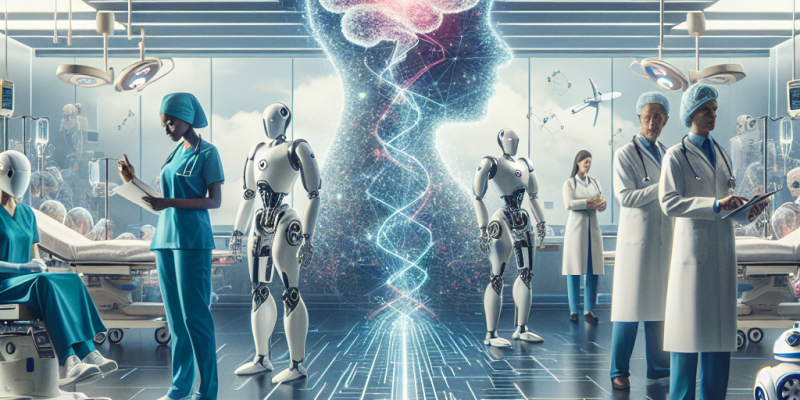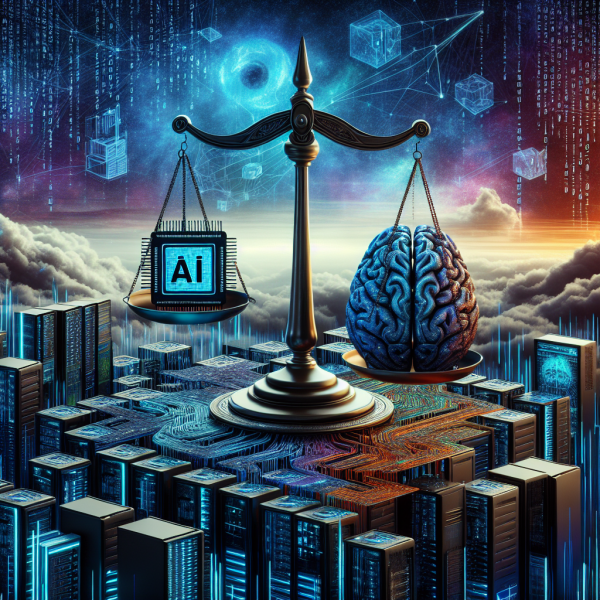How AI is Transforming Healthcare: Innovations You Need to Know in 2024

The healthcare landscape is undergoing a seismic shift, propelled by rapid advancements in artificial intelligence (AI). As we venture further into 2024, AI continues to play a pivotal role in enhancing the efficiency, accessibility, and effectiveness of healthcare services. Innovations in AI are not only streamlining operations but are also revolutionizing patient care, diagnosis, treatment planning, and administrative functions. Below, we explore some of the most exciting AI innovations that are transforming healthcare this year.
1. Predictive Analytics for Patient Outcomes
Predictive analytics powered by AI is providing healthcare professionals with powerful tools to forecast patient outcomes more effectively than ever before. By analyzing vast amounts of medical data, including patient histories, genetic information, and lifestyle factors, AI algorithms can identify trends and predict potential complications. This enables clinicians to intervene earlier, promoting preventative care and personalized treatment plans. For instance, AI models are being used to assess the risk of conditions like heart disease, diabetes, and even cancer, allowing for timely and proactive care.
2. Enhanced Medical Imaging and Diagnostics
AI is taking medical imaging to new heights, with innovations that exceed traditional diagnostic methods’ capabilities. AI algorithms can analyze imaging data—such as X-rays, MRIs, and CT scans—more accurately and rapidly than human radiologists. In 2024, we see advanced deep learning models that help detect anomalies like tumors or fractures with precision. Some AI solutions can even segment images, highlight areas of concern, and provide quantitative analyses, all of which support clinicians in making faster and more accurate diagnoses.
3. AI-Driven Drug Discovery and Development
The pharmaceutical industry is also experiencing a transformation due to AI. In 2024, medicinal chemistry and drug discovery processes are increasingly reliant on AI algorithms that can predict molecular interactions and optimize drug candidates efficiently. By employing machine learning techniques, researchers can rapidly analyze massive datasets of chemical compounds and biological responses, drastically reducing the time and cost associated with bringing new drugs to market. This AI-driven approach is ushering in a new era of precision medicine, enabling tailored therapies for various conditions.
4. Virtual Health Assistants and Telemedicine
The rise of virtual health assistants—powered by natural language processing (NLP) and machine learning—has transformed patient interactions with healthcare systems. In 2024, these AI-driven chatbots and applications provide patients with immediate support for scheduling appointments, answering frequently asked questions, and even offering preliminary symptom assessments. Furthermore, telemedicine platforms are integrating AI to enhance remote patient monitoring and consultation, helping clinicians make informed decisions from a distance and promoting continuous care.
5. Workflow Optimization and Administrative Efficiency
AI technologies are reducing administrative burdens that plague healthcare staff. In 2024, hospitals and clinics are utilizing AI-driven automation tools to manage schedules, billing, and compliance tasks. Natural language processing streamlines medical coding and documentation processes, ensuring that healthcare providers can focus more on patient care rather than paperwork. These optimizations lead to improved operational efficiency, reduced costs, and ultimately, a better experience for both providers and patients.
6. Real-time Monitoring and Personalized Care
The proliferation of wearable devices and remote monitoring tools is another area where AI is making significant strides. In 2024, AI algorithms analyze real-time health data from wearables, allowing for continuous monitoring of vital signs and health metrics. These insights facilitate personalized care plans and timely interventions. For patients with chronic conditions like diabetes or heart disease, AI can alert healthcare professionals to concerning trends, enabling immediate action and better health outcomes.
7. Ethical AI and Bias Mitigation
As AI becomes more ingrained in healthcare, addressing ethical concerns and potential bias within AI algorithms has never been more critical. In 2024, organizations are prioritizing the development of fair, transparent, and equitable AI systems. By implementing rigorous testing and validation processes, healthcare providers aim to ensure their AI tools do not inadvertently perpetuate existing disparities in care.
Conclusion
AI’s transformative capabilities are reshaping the healthcare industry in 2024 and beyond. From improving diagnostic accuracy and optimizing drug discovery to personalizing patient care and streamlining administrative tasks, the innovations in AI present vast potential for enhancing healthcare delivery. While challenges remain—particularly surrounding ethics and bias—the continued evolution of AI technologies will pave the way for a more efficient, accessible, and effective healthcare system. As we embrace these advancements, the future of healthcare looks promising, with AI leading the charge towards improved patient outcomes and experiences.














